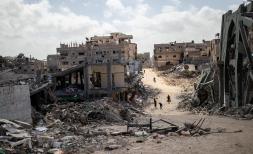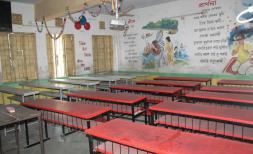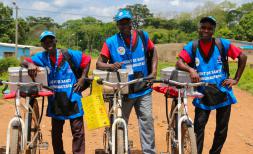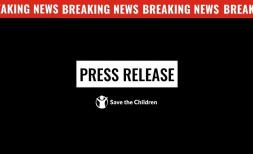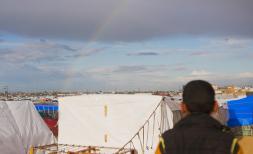Child labour risks found widespread in global supply chains from cellphones to coffee: new study
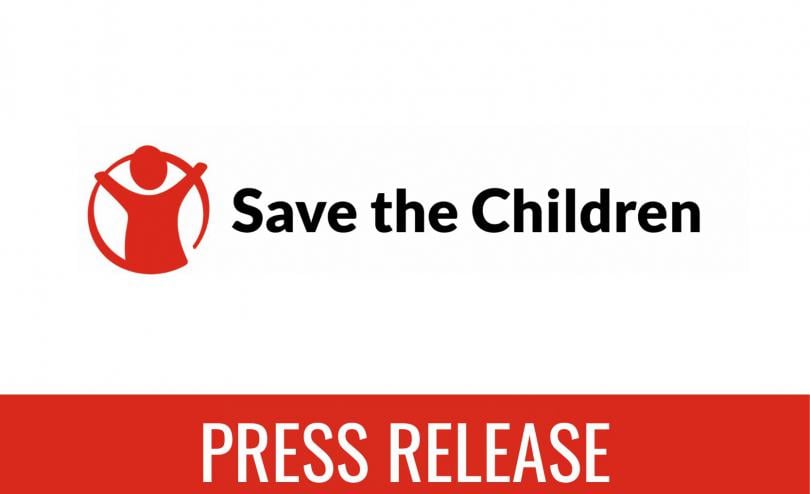
Berlin, 11 May 2023 – The risk of child labour remains widespread in global supply chains, according to a new study by Save the Children Germany and its subsidiary The Centre for Child Rights and Business that looked at manufacturing, agriculture and mining industries in eight countries.
The study, "Child Rights Risks in Global Supply Chains: Why a ‘Zero Tolerance’ Approach is not Enough", evaluated 20 child rights risk assessments in international supply chains and found child labour in half of them despite a zero-tolerance approach by companies. Eight of the remaining 10 assessments showed a very high risk of child labour. The worst cases were found in mining, particularly artisanal and small-scale mining.
"The clothes we wear, the cell phones we use and the food we eat may have been produced at the expense of children. This thought should trouble us all," said Anne Reiner, lead of Sustainable Supply Chains at Save the Children Germany. "The study shows that many of the workers who make everything from coffee to batteries for our daily use, can barely cover their children's education with their wages, forcing their children to work."
The report analysed 20 supply chain child rights risk assessments conducted between 2019 and 2022 that shed light on risk factors and business practices within the manufacturing, agriculture and mining industries in Ethiopia, Brazil, India, Indonesia, Sri Lanka, Vietnam, Turkey and the Democratic Republic of Congo.
About 2,750 parents and 1,800 children were interviewed, and discussions were held with other relevant stakeholders in supply chains and communities. These studies provided an exhaustive data set documenting the child rights situation in today’s supply chains.
The analysis showed that the vast majority of child labour cases were hidden "below the surface" in deeper tiers of the supply chains and informal sectors of the economy. Most companies’ current monitoring mechanisms often only led to the redistribution of child labour, not its elimination. The study concluded that insufficient income of parents and high education costs increased the risk of child labour in all sectors, and that the lack of formalisation in local economies heightened it further.
"I started working here when I was 13 years old," said a 17-year-old employed in a family business. "I work about nine hours a day, in busy times even 13 hours."
The exclusion of youth under the age of 18 from the formal sector increased the danger that they would be driven to engage in hazardous work in less regulated sectors, even though they have reached the national minimum working age. This was due to zero-tolerance policies of many international companies. Corporate practices such as aggressive pricing structures, unrealistic turnover time, and unpredictable order volumes further exacerbated the risk.
"We hope our study will encourage governments to hold the private sector accountable for its sourcing practices and motivate companies to take responsibility for effectively addressing child rights violations in their supply chains," said Florian Westphal, CEO of Save the Children Germany. "The future of millions of children depends on it."
ENDS
Link to study: "Child Rights Risks in Global Supply Chains: Why a ‘Zero Tolerance’ Approach is not Enough"
*******************************************************************************************************************
For interview and content requests please contact the Save the Children Germany press office:
Save the Children Germany
Marie-Sophie Schwarzer
Phone: +49 30 27 59 59 79 226
Email: marie.schwarzer@savethechildren.de
Spokespeople available:
- Anne Reiner, Lead Sustainable Supply Chains at Save the Children Germany
- Ines Kaempfer, CEO of The Centre for Child Rights and Business.
Our media out of hours (BST) contact is media@savethechildren.org.uk / +44(0)7831 650409
